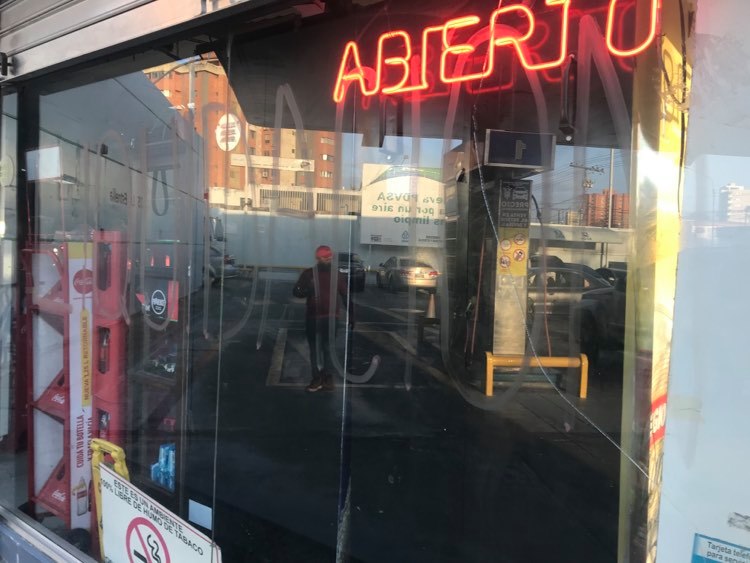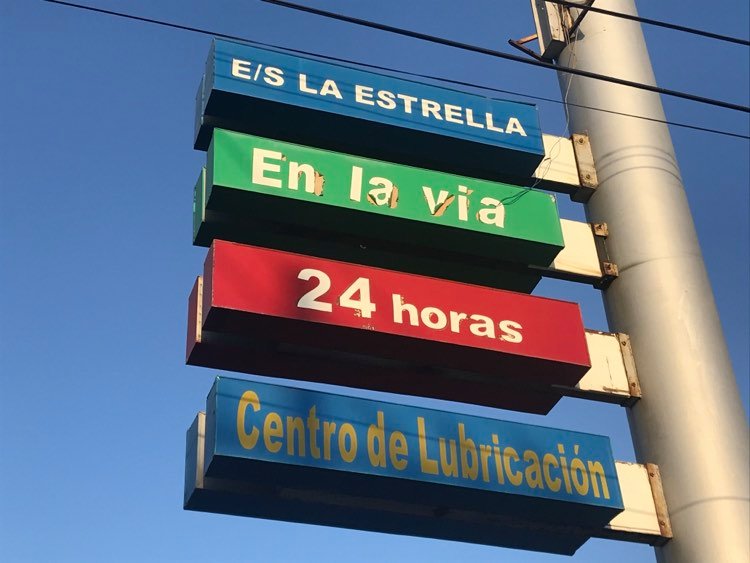The Maduro Regime Takes Over Gas Stations—And Whole Communities Suffer
The story of one of Maracaibo’s most crowded gas stations and convenience stores proves how the new economy around gas could change cities


Photo: Antonio Matheus
A single page letter is all it takes to destroy a legacy.
That’s what the people running La Estrella, a gas station in Maracaibo, received in the last week of February: an insulting single-page letter notifying them of the “Operational and Administrative Recovery” of the gas station, giving them 72 hours to hand it over to their owner, state-run PDVSA. A unilateral rescission of a contract that ended more than three decades of a family business, because government officials had found a new cash cow in gasoline retail.
There’s a distinction between concession-run gas stations like La Estrella, and privately owned ones; in Maracaibo, there’s a mixture of both. La Estrella was efficiently run like a family business because that’s what it was, and not just because Mr. Socorro worked there with his children—even the employees not related to the family were part of a very tight-knit team.
This new wave of gas station takeovers has been taking place ever since the regime found itself cash-strapped. For years, plenty of gas stations in Venezuela worked under a concession figure, run by private entrepreneurs under contract with PDVSA. La Estrella is one of at least five of the main gas stations in Maracaibo that have suffered sudden endings to their concessions, like Lago Pista, located on the main highway in and out of the city. It’s assumed by everyone (including the entrepreneurs themselves) that every gas station under concession will be now taken over sooner rather than later.

“Suddenly there was money to be made by selling fuel and what was a nuisance before (the task of administering fuel), became a lucrative cash business, precisely what the regime craves the most.”
Photo: Antonio Matheus
For years, before dollarization, these gas stations received subsidies from the state. Gas stations paid symbolic prices for the fuel trucks but they’d also get paid by PDVSA way more than the fuel truck bill, to practically give away that fuel for free. This scheme was supposed to help the citizens with the administration of PDVSA assets. In fact, gasoline was a squalid business where there was very little profit to be made, which is why owners focused on robust convenience stores to thrive.
This all changed with dollarization. Suddenly there was money to be made by selling fuel and what was a nuisance before (the task of administering fuel), became a lucrative cash business, precisely what the regime craves the most. So the idea of someone other than the government and its pals enjoying the loot is simply unimaginable. Until now, only the gas stations that were under concessions have been targeted for repossession; the owners of private gas stations stand uneasy, watching and hoping they aren’t next in the tidal wave.
Closing Hours
The sign at the window for those two last days read “LIQUIDATION,” in all caps, and I immediately thought, that’s exactly what it is. The deadly phantom is liquidating a star. La Estrella Gas Station is just 700 mts. away from where I live, and my family’s been going there since Mr. Socorro started, more than 30 years ago.
The Socorro’s family generosity was (and is) the best face humanity has to put on. They always went out of their way to lend a hand, something particularly hard to pull off if you want to run a successful business.

“That gesture not only alleviated a financial burden, but more importantly, was regarded as a sign of love and appreciation, and my father never got over it.”
Photo: Antonio Matheus
My father is 86 years old now, and he, like Cal Ripken playing baseball everyday, always went to the gas station to get his breakfast and coffee. That was his ritual for decades, until old age intervened. Mr. Socorro then took it upon himself to send my father breakfast and coffee everyday, no matter what, free of charge. That gesture not only alleviated a financial burden, but more importantly, was regarded as a sign of love and appreciation, and my father never got over it. That coffee gave him a much needed sense of continuity in a country shedding its skin, destroying that stability that he earned with his work.
I cannot replicate that continuity for my father, and I’m sure it’s also lost for dozens of families all over this city. It’s the death of a star, which is precisely what La Estrella Gas Station was, a source of light that helped many navigate this dark road of daily life.
This, of course, is nothing new. The stories of families losing their businesses to the grips of corruption and greed have been a constant the last two decades. Now’s the time for convenience stores and gas stations that pulled communities together to fall into the chasm of the moment.
These few short lines are just an attempt, most likely futile, to state on the record that someone cares. The stories and memories might disappear into ether, but that ether at some point might become the sickness that ends that deadly phantom.
Caracas Chronicles is 100% reader-supported.
We’ve been able to hang on for 22 years in one of the craziest media landscapes in the world. We’ve seen different media outlets in Venezuela (and abroad) closing shop, something we’re looking to avoid at all costs. Your collaboration goes a long way in helping us weather the storm.
Donate




